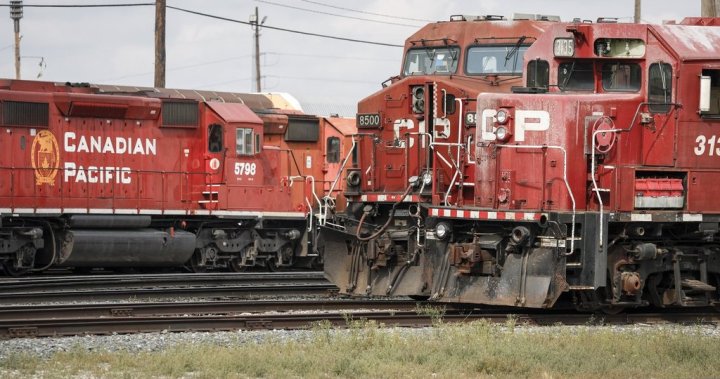The gleaming headquarters of Canadian Pacific Kansas City (CPKC) railway in Calgary stands as a monument to continental trade ambitions. Yet today, those ambitions are being dramatically scaled back as the rail giant navigates an increasingly treacherous economic landscape.
CPKC announced Wednesday a significant reduction to its 2024 financial forecast, sending tremors through Canada’s transportation sector. The company now expects adjusted earnings growth in the low single-digit percentage range—a stark departure from previous projections of 10-15% growth that had investors bullish just months ago.
“We’re seeing multiple economic headwinds converging simultaneously,” CPKC CEO Keith Creel told analysts during the company’s quarterly earnings call. “The uncertain trade environment, particularly potential tariffs on Canadian goods entering the U.S. market, requires prudent adjustment to our operational outlook.”
The railway’s revised forecast comes directly in response to President-elect Donald Trump’s campaign promises to implement sweeping tariffs, potentially reaching 10-20% on Canadian goods. For CPKC, which completed a historic $31 billion merger just last year creating the first single-line rail network connecting Canada, the U.S., and Mexico, these trade barriers represent an existential challenge to its business model.
Industry analysts note that CPKC moves approximately $3.3 billion worth of goods between Canada and the United States weekly. Nearly 40% of those shipments could face new tariffs if campaign promises materialize into policy.
“This isn’t just about CPKC’s bottom line,” said transportation economist Maya Richardson. “We’re witnessing the potential restructuring of North American supply chains. When railways—the backbone of continental trade—start adjusting forecasts downward, it signals deeper economic uncertainty ahead.”
Beyond tariff concerns, CPKC cited additional factors contributing to the forecast reduction: slowing automobile shipments, decreased grain movements, and weaker consumer demand across North America. The company’s stock fell 3.7% following the announcement, dragging down shares of other Canadian railways including CN Rail.
Calgary’s economy stands particularly vulnerable to these transportation disruptions. The city hosts not only CPKC’s headquarters but a network of logistics operations, warehousing facilities, and supply chain management companies that collectively employ over 18,000 people across the metropolitan area.
Mayor Jyoti Gondek addressed the forecast revision during a downtown business association meeting Thursday morning. “Calgary’s position as a continental transportation hub remains solid, but we must prepare for potential disruptions. We’re working closely with provincial and federal partners to ensure our logistics sector can weather these challenges.”
For investors, CPKC’s announcement raises questions about the future of North American freight movement. The company had positioned its three-country network as revolutionary—promising shippers shorter transit times, reduced congestion, and seamless border crossings. That vision now faces its first major test.
“We remain confident in our long-term strategy,” Creel emphasized. “The fundamentals of our tri-national network are sound. We’re taking proactive measures now to ensure we can navigate whatever trade environment emerges in 2025.”
Those measures include targeted cost reductions, strategic rerouting of certain shipments, and accelerated technology investments aimed at improving operational efficiency. The company also disclosed plans to postpone $170 million in capital expenditures originally scheduled for early 2025.
Will CPKC’s forecast cut prove prescient or overly cautious? The answer lies in Washington’s policy decisions over the coming months—decisions that will reverberate through rail yards from Vancouver to Veracruz and everywhere in between.
For more market insights, visit CO24 Business or check out our latest transportation coverage at CO24 Breaking News.


















